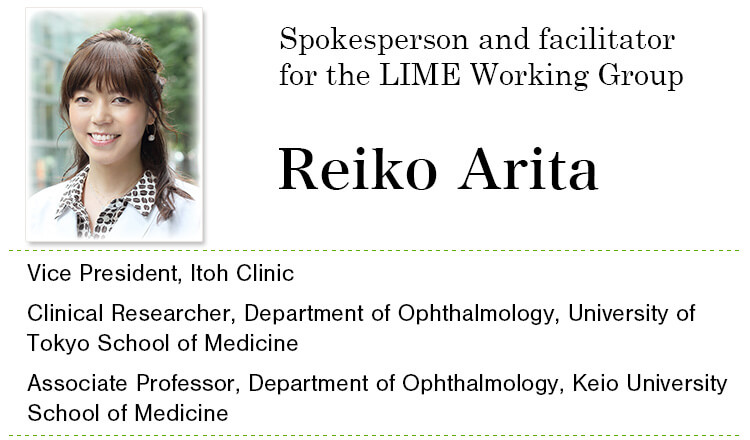Greetings
Greetings

Hello, everyone. Have you ever heard of “meibomian glands”?
The meibomian glands are sebaceous glands that secrete lipids into the tear film. If your meibomian glands are functioning properly, your tears will not evaporate.
Recently, an increasing number of patients have complained of eye discomfort or dry eye symptoms, e.g. their eyes are tired, irritated, or dry. For about 80% of these patients, their complaints are caused by insufficient oil in tears or the oil in tears is of poor quality. This causes tears to increasingly evaporate and can lead to dry eye (Lemp et al., Cornea, 2012).
In Japan, patients with dry eye are reported to number between 8 million and 22 million people, so 80% or more of these patients (from 6.4 million to 18 million) have dry eye due to abnormalities in tear film lipids.
“Dry eye” is not the same thing as “meibomian gland dysfunction (MGD),” but differentiating between the two based solely on symptoms is difficult.
Patients with MGD are often encountered in a typical ophthalmology visit. MGD is a chronic condition with a long course, so it is often difficult to diagnose and treat.
Moreover, the reality is that many aspects of the pathology and mechanisms of conditions affecting the meibomian glands (like MGD) are not yet known.
The LIME Working Group (the Lid and Meibomian gland Working Group) began with 7 members in February 2012. The goals of the LIME Working Group have been to educate the public about conditions affecting the meibomian glands, to identify objective methods of diagnosing those condition, to disseminate information on care patients can perform at home, to ascertain the pathologies of those conditions from new points of view, and to endeavor to develop treatments for those conditions.
The LIME Working Group meets regularly 2 times a year, it organizes an annual international seminar with speakers from overseas, it conducts an instruction course for a society of clinical ophthalmology here in Japan, and it has produced a DVD to educate hospital personnel and patients about at-home care. The LIME Working Group has also created this website and it is steadily expanding its efforts.
These advances are due in large part to people who have understood the purpose of this Working Group and who have provided their support.
The LIMe Working Group will continue to conduct workshops and information sessions, to organize educational campaigns, and to actively inform the public. Your help in these endeavors is greatly appreciated.


